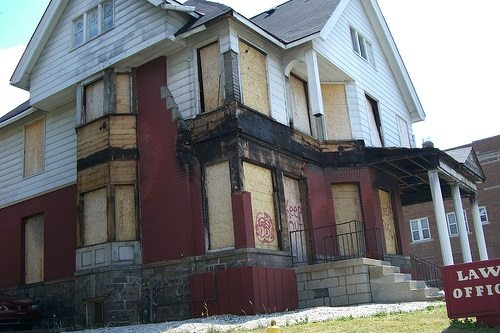
July 21, 2014; MLive
In all of the drama of Detroit, it may be easy to overlook the smaller cities in Michigan that struggle with and must address many of the same problems. So when advances are made, it is important to acknowledge and learn from them.
In Flint, Michigan, Emergency Manager Darnell Earley reports that fire calls in the blighted city have dropped 58 percent, from 4,441 by this time in 2013 to 1,862 over the same period this year, with the help of a $20 million grant from federal funds for Hardest Hit Communities. The grant is to be used to raze 1600 properties. In October 2013, there were an estimated 5600 abandoned homes.
Sign up for our free newsletters
Subscribe to NPQ's newsletters to have our top stories delivered directly to your inbox.
By signing up, you agree to our privacy policy and terms of use, and to receive messages from NPQ and our partners.
The president of Flint Firefighters Union Local 392, Mark Kovach, said he’s unsure what impact the demolitions have had on the number of fires his firefighters needed to respond to, but U.S. Rep. Dan Kildee (D-Flint Township) said that abandoned houses are ten times more likely to be the source of fire than homes that are lived in. Kildee was instrumental in acquiring the Hardest Hit Funds for Flint. “A lot of these older cities, like Flint, Saginaw and Detroit, need significant help from the state and federal government to right-size their housing inventories,” Kildee said.
Meanwhile, Metro Community Development is trying to help people in Flint retain their homes and prevent further abandonment. (Foreclosures spiked in that community in 2006–2007. And just to provide a bit of context, Flint’s unemployment rate in 2006 was twice the nation’s average.) MCD provides financial counseling and, among other services, a zero-percent-interest loan to households that qualify. That program is made possible through $498.6 million that Michigan received from the Emergency Economic Stabilization Act in 2010.
MCD helps 270 families a year on average in preventing foreclosure.
The C.S. Mott Foundation, as readers may know, is located in and heavily investing in the redevelopment of Flint.—Ruth McCambridge











